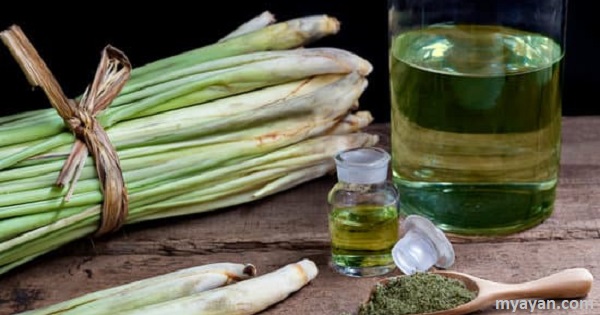No wonder how many wonders can nature do to you. How many mysteries can a plant have in order to get the best of you? Lemon Grass Plant is one such gift of nature that has been used since ancient times. Now, much of the modern world has been able to get the most out of it. Because earlier lemongrass was commonly used as a spice in foods and as a medicine that you merely heard of.
Are there only benefits of lemongrass that you should know about? What if there are things that were hidden from you about this 2-meter-long grass? Are there any so-called disadvantages of lemongrass? What’s more to the table? You’ll be able to know here when you unlock the mysteries further.
Lemongrass is an aromatic, perennial, and tall tropical plant that has leaves that can grow up to 2 m. Its stems are stiff at the base and leaves are spread more extensively as they grow. Lemongrass is what you can grow in your garden, and the right way to spot it is by identifying the shape and color of its leaves. Its leaves are smooth and hairless, which are a little white on the upper surface while greener beneath.
The Lemongrass plant is known as Cymbopogon Citratus scientifically and belongs to the family Poaceae Barnhart and the genus Cymbopogon. It is also known as West Indian Lemongrass. There are about 120 species in total that grow across the South East Asian regions alone.
Some other names of Lemongrass: are Fever Grass, Barbed Wire Grass, and Silky heads.
And if you happen to see so many lemongrass plants across Sri Lanka and Malaysia, don’t be surprised to see how people make good use of it. This grass may look like it’s a wild plant, but this plant blooms mainly in tropical regions and has not been noted to grow in wild areas. From culinary uses to cosmetic products, lemongrass is now widely used and introduced to the African and American regions as well. Lemongrass has another distinctive feature that is; it grows 365 days a year.
This shrub has been used in different practices for centuries due to its tremendous properties. The world of sciences could not remain unaware of its healing properties. To have you know, Lemongrass is a slightly bitter, highly aromatic, and cooling herb that increases perspiration and relieves spasms.
The lemongrass essential oil is obtained from the plant, which is also an effective antifungal and antibacterial agent. This lemongrass oil contains about 70% citral and citronella, both of which are markedly sedatives.
Lemon Gras in different forms is used to treat respiratory infections, sinusitis, bladder infections, high cholesterol, and varicose veins.
The lemongrass extracts are also used to treat digestive problems as a relaxant for the stomach and bad gut.
When consumed in the form of tea or syrup, lemongrass juice can also help you relieve cramping, stomach pains, and flatulence. You can use lemongrass extracts to treat fever in kids and reduce the effects of fever.
The external application of oil extracted from lemongrass is also helpful for you if you suffer from Arthritic joints, Athlete's foot, ringworm, lice, and scabies.
Due to its high potency, it is also an excellent remedy for stomach and liver diseases, including rheumatism.
Consult your medical or healthcare expert in case you:
The use of lemongrass certainly depends on your health, age, and other medical conditions. From direct application to consumption in different forms, you are advised not to take lemongrass in a higher dosage. Limit your dosage as per the directions of your medical expert or pharmacist.

Lemongrass benefits you in many different ways. This plant contains antioxidants, antifungal, and antimicrobial agents that help your internal functions stay in full flow. Lemongrass plant is also an excellent insect-repellent due to its strong aroma. This plant is also helpful for Agroforestry purposes.
Lemongrass has a strong lemon-like aroma and is also used as an additive ingredient in culinary to add a lemony flavor in many dishes. This plant is used widely in South-East Asian countries as a spice replacing lemon. Due to its lemon-like features, lemongrass tea, and juice is also served to obtain the benefits as that of a lemon.
The side effect of lemon grass includes itchiness, skin irritation, and rashes. However, the over-application of its extracts, such as lemongrass essential oil, and cosmetic products may also lead to severe effects. If you consume lemongrass tea or juice excessively, it may affect you during pregnancy, breastfeeding, and menstruation severely — consumption of lemongrass during chemotherapy risks in the hampering the effects of chemotherapeutic agents.
You can take lemongrass tea every day in a limited quantity. Make sure you are not undergoing any cancer treatment or kidney disease. The excessive consumption of lemongrass tea may increase your urinary excretion. Also, you need to consult your health specialist if you are pregnant or breastfeeding. In the case of menstruation, you need to take precautionary steps to avoid any risks.